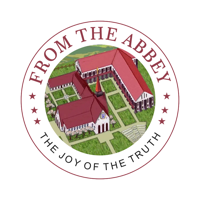Growing in the Theological Virtues – Are You Following the Greatest Commandments?
“Meanwhile these three remain: faith, hope and love. And the greatest of these is love.”
Charity is the greatest of the theological virtues. The theological virtues of hope and faith are at the service of the theological virtue of charity. The very purpose ofthe theological virtues of hope – to teach us to trust – and faith – to give us intimacy – is to prepare us to love.
Why Do You Exist?
One of those questions that modernism has really messed up for us is, “Why do you exist?” Modernism (the philosophy that denies that anyone can know objective truth) tells us that this answer cannot really be known. But Catholics do know why we exist. We exist to know God, to love him, to serve him in this world and to be eternally happy with him in the next.
In other words, God created us to be members of His divine Family. He created us simply so that he could love us and so that we could love him. But as members of a Family with God as our Father, we are also created to love each other. This is the very meaning of the concept of “Covenant.”
“Master, what is the greatest Commandment?
This truth is verified for us in the two Great Commandments. When Jesus is asked what the two greatest commandments are, he quotes from Deuteronomy and Leviticus. “The first is ‘Hear, oh Israel. You shall love the Lord Your God with all your heart, all your mind and all your soul,’ and the second is like it, ‘You shall love your neighbor as yourself.’” These “Great Commandments” were understood even by the Hebrew People to sum up the very purpose of the Law of Moses. Jesus verified that all of salvation history is summarized in the call to love.
Love of God – The Center of Our Lives
If we want to be perfect in holiness (or at least a bit closer to perfection), we are first called to love God with our entire being. Unfortunately, the great temptation most of us face is to be distracted from the main goal of our lives and to treat God as just another good, equal to all others, rather than as THE good. So love of God is always a challenge.
Charity is not just another virtue for disciples of Christ. It is the virtue. Every other virtue leads to charity. We are called to become better people through virtue so that we can become people of love. After all, that is what it means to be the image of God.
Exercise the Muscle!
Just like the other theological virtues (faith and hope), charity is first a grace given to us in baptism and grown through the power of the Holy Spirit. But it is given to us just like a physical muscle. It’s up to us to strengthen it and to use it. If you would like to learn more about how to cooperate with grace in order to become a person of love, you might be interested in From the Abbey’s online courses. The Power of Virtue helps you develop your character through establishing and strengthening virtue so you can become the masterpiece God created you to be. Building Community focuses on building up your closest relationships – your marriage, parenting and friendships, so you can build a supportive community of faith around you. And the course “To Love as Christ Loved” is our course specifically on how to build charity. All of these courses can help you build the virtue of charity so you can live as a member of God’s family and grow in holiness. Click on one of the links above and join a dynamic Catholic learning community as we grow in our love of God together.
Brought to you by Jeff Arrowood, founder of the From the Abbey Catholic educational apostolate – encouraging you to rediscover the JOY of learning and living your faith so you can grow in intimacy with God.

